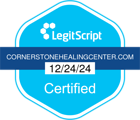Check My Treatment Coverage
Your Recovery Journey is Covered
We accept most insurance plans to ensure you receive the care you need for addiction treatment treatment. Our comprehensive care also includes aftercare programs and recovery coaching to help you maintain long-term wellness.
Our programs include:
- Residential Treatment for addiction and mental health
- Intensive Outpatient Programs (IOP) for structured support
- Outpatient Services flexible support for those who need it
- Virtual IOP to offer care from the comfort of your home
- Ongoing Wellness Coaching to help you stay on the path to success long after treatment is complete

We Accept the Following Insurances for Addiction and Services

Our Substance Abuse Treatment Programs
Whether you’re looking for residential care, outpatient substance abuse treatment, or a virtual option, we offer a range of personalized treatment plans to help you navigate both addiction and mental health challenges. Our dedicated team is here to create a safe, supportive environment where you can heal and achieve lasting recovery. The best part is that all of these programs are covered by our accepted insurances.
We treat the following addictions:
Will my health insurance cover drug rehab?
Most likely, yes. The Mental Health Parity and Addiction Equity Act (MHPAEA) ensures that health insurance plans give equal benefits for mental health and substance use treatments as they do for regular medical care. However, even with this law, coverage details can vary. Contact your health insurance to learn more about your specific plan’s coverage.
What specific types of substance abuse treatments are covered?
Your coverage depends on your individual plan. However, it many insurances commonly cover the following:
- Residential Treatment
- Outpatient Services
- Intensive Outpatient Programs (IOP)
- Partial Hospitalization Programs (PHP)
- Group Therapy
- Family Therapy
- Behavioral Therapies
- Substance Use Disorder Treatment
- Telehealth
Does my insurance cover both drug and alcohol addiction treatment?
Yes. Both drug and alcohol treatments are often covered by health insurance, though your coverage depends on your specific plan. Contact your health insurance to learn more about your specific plan’s coverage
What are the benefits of going to an in-network residential drug rehab?
Going to an in-network facility has several advantages. One of the most significant benefits is that treatment can be more affordable as your insurance typically covers a larger portion of the costs. This means you might only have a small copay for each visit rather than paying a big chunk of the bill yourself.
Another plus is that the paperwork is usually simpler and the facility is most likely vetted by your insurance company. Cornerstone is in-network with most major insurance providers in Arizona.
What are the benefits of going to an out-of-network drug rehab?
If a drug rehab facility is “out-of-network,” it means that the facility doesn’t have a special pricing agreement with your insurance company. Choosing such a facility might result in higher costs for you.
However, remember that just because a rehab is out-of-network doesn’t mean it’s lower quality care. In fact, some out-of-network rehabs might offer better care and treatments that can be more effective. Always weigh the benefits of the treatment and care quality against the potential costs when considering an out-of-network drug rehab.
Do I need pre-approval to get into treatment?
Pre-approval depends on your insurance company, your coverage, and the type of treatment. Reach out to your insurance provider to learn more.
Are aftercare and follow-up services covered by my insurance?
Sometimes! After finishing the main treatment for drug and alcohol addiction, aftercare can help keep you on the right path. However, it can include more therapy, going to support group meetings, and other helpful services that may not be covered by your insurance. Reach out to your insurance provider to learn more.
Let's begin the journey together
Frequently Asked Questions
Knowledge base
Insurance Information
Get Started Now
Call and speak with one of our caring team members about help for you or a loved one.





